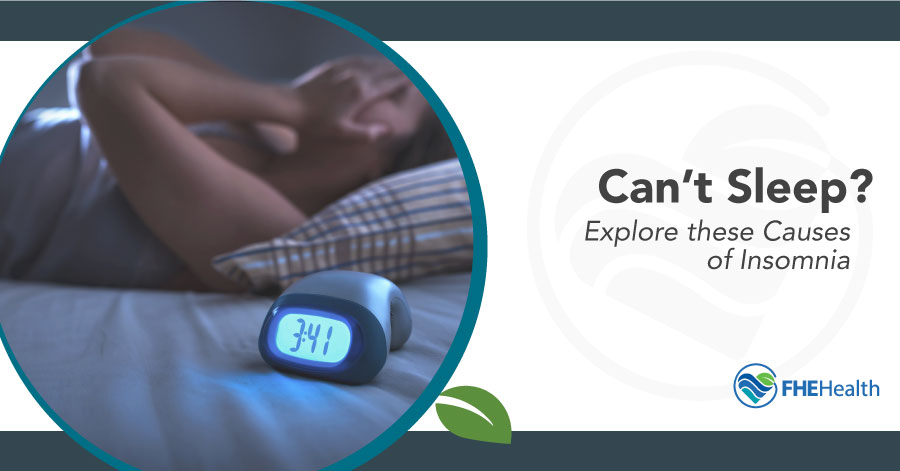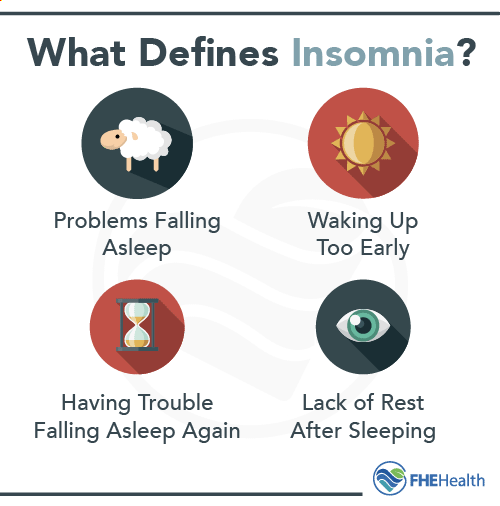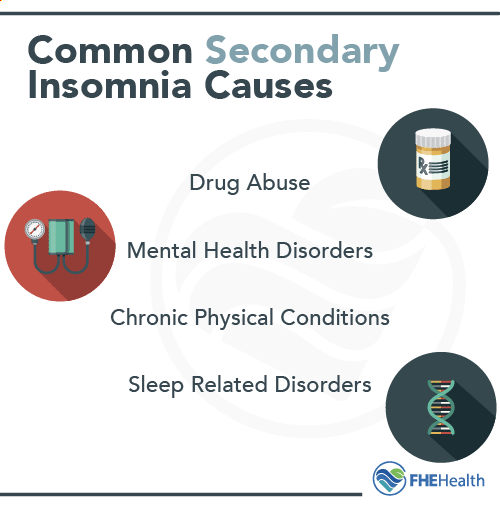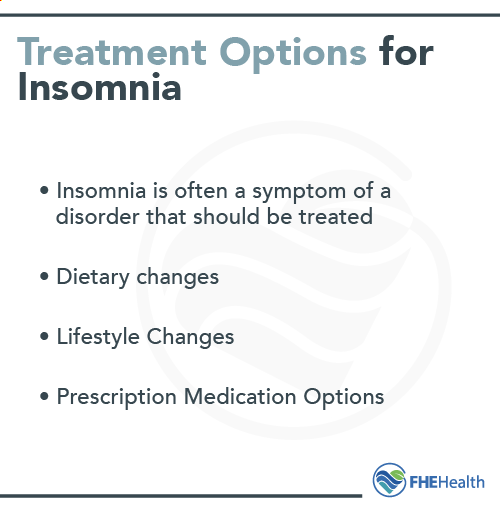
What Is Insomnia?
According to the U.S. Department on Women’s Health, insomnia is a sleep disorders that is characterized by one or more of the following:
 Problems falling asleep
Problems falling asleep- Waking up too early
- Having trouble falling asleep after waking up in the night
- Feeling a lack of rest after sleeping
Insomnia comes in two major types: primary and secondary. Primary insomnia occurs when the sleep disorder is its own condition and isn’t related to another physical or mental health condition. Secondary insomnia occurs when sleep issues are symptoms of another condition.
Insomnia Versus Normal Trouble Sleeping
Many people say they have insomnia when they have normal trouble sleeping. But it’s common to struggle with sleep from time to time in life. Drinking too much coffee one day, experiencing abnormal stress at work or a major change in life — such as a divorce or losing a loved one — can put strain on your normal sleeping patterns temporarily.
The difference between these issues and insomnia is that insomnia involves a prolonged pattern. A diagnosis of chronic insomnia tends to require trouble sleeping for three or more nights a week for a period of three or more months.
Common Secondary Insomnia Causes
 Secondary insomnia can be caused by a wide range of conditions, including but not limited to:
Secondary insomnia can be caused by a wide range of conditions, including but not limited to:
- Drug abuse
- Mental health disorders
- Chronic physical conditions, such as migraines or arthritis, that cause pain
- Disorders impacting the thyroid, digestive system or respiratory system, especially if it makes it hard for people to breathe
- Sleep-related disorders such as restless leg syndrome
- Menopause or other hormonal issues
Insomnia and Drug Use
Drug abuse or addiction commonly co-occur with insomnia (that means people experience them at the same time) for a number of reasons.
A first reason that these conditions are often found together is that some people with issues sleeping may self-medicate to fall asleep. Perhaps they have long-term life stressors that keep them from falling asleep at night, or they have a primary insomnia condition that has never been diagnosed. To fall asleep at night, they might drink alcohol or use certain drugs.
As tolerance develops for the substance, the person may need more of it to get the same result. They might also begin to rely on it to sleep every night. All of this works together to create an addiction.
On the other hand, insomnia could be a symptom of drug use. That’s especially true for someone taking stimulants such as amphetamines, cocaine and khat. These drugs can stimulate the body, creating a sense of energy and wakefulness that makes sleep difficult, even after coming down from a high.
Even drugs without stimulant effects, like marijuana, can lead to sleep issues. All drugs interact with your body, and many change the way your body and brain functions. Often, those changes are to receptors or hormones that help manage functions such as sleep, and that can lead to problems sleeping.
Unfortunately, even if you quit using drugs, sleep problems can continue during withdrawal periods. During this time, your body is ridding itself of the toxic drug chemicals and attempting to find its way back to normal. You can experience a variety of uncomfortable side effects without treatment intervention, ranging from digestive distress and pain to hallucinations to sleep issues.
Insomnia and Mental Health
The National Heart, Lung, and Blood Institute notes that mental health issues can be a risk factor for insomnia. Specifically, someone who is experiencing issues that can lead to depression and anxiety is at greater risk for a sleep disorder.
Those who have been diagnosed with mental health issues may also experience insomnia as a symptom of those conditions. Depression, anxiety, bipolar disorder and other mental health issues may be related to chemical imbalances or other issues with brain and body functionality. Those same issues can limit the body’s ability to properly regulate sleep.
In other cases, the lack of sleep may be due to emotional or mental distress. Someone with an untreated anxiety disorder may not be able to quiet their mind at night and may lose sleep because of that, for example.
In contrast, someone who is experiencing insomnia for another reason could develop depression or anxiety due to not being able to sleep. The sheer exhaustion that comes with long-term lack of sleep can lead to long-term depression and, in extreme situations, the inability to tell reality from fantasy.
Can Insomnia Be a Stand-Alone Condition?
Yes, some people have primary insomnia. In this case, their insomnia is the beginning condition, not a symptom of another issue.
However, you can see from the information above that primary insomnia can lead to secondary drug abuse or mental health disorders.
Options for Treating Insomnia
 In many cases, treating insomnia first involves answering the question, “What is insomnia stemming from?” In short, providers work to find the root causes of insomnia and help you resolve those issues. If the insomnia is secondary, it often goes away or is heavily reduced once the contributing factors are treated.
In many cases, treating insomnia first involves answering the question, “What is insomnia stemming from?” In short, providers work to find the root causes of insomnia and help you resolve those issues. If the insomnia is secondary, it often goes away or is heavily reduced once the contributing factors are treated.
This can involve:
- Treating substance abuse or addiction disorders
- Helping someone mitigate and get through withdrawal periods
- Treating mental health conditions
- Treating underlying physical health conditions
For primary insomnia, clinicians typically first look for lifestyle habits that could be leading to insomnia. You might be asked to try a new diet, reduce certain activities before bed, reduce caffeine or sugar consumption or engage in exercise or relaxation programs. Therapy may be used to help you deal more effectively with life stressors. All of these actions can help reduce insomnia in many cases.
When primary insomnia can’t be reduced by lifestyle changes, a doctor might prescribe medication to help a person manage their sleep.
Can’t Sleep Because of Addiction or Mental Health Issues?
If you’re experiencing insomnia that may be related to drug use or mental health issues, FHE Health can help. Stop tossing restlessly in bed and settling for a life of exhaustion. Contact us today at (833) 596-3502. Our caring staff is standing by to answer your call.






